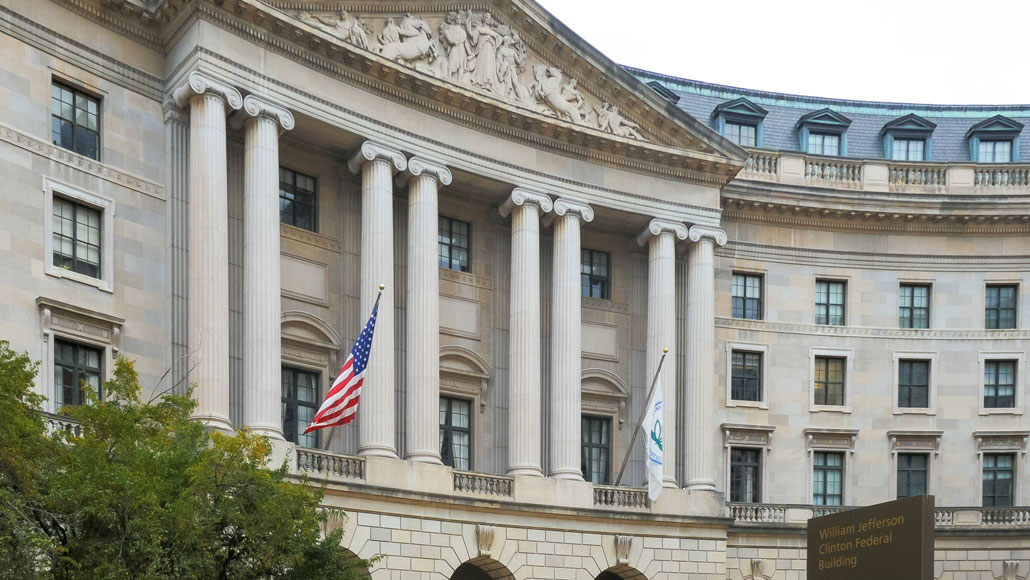
A rule meant to increase transparency in environmental research could prevent relevant scientific evidence from factoring into the U.S. Environmental Protection Agency’s regulations, argue the editors of six scientific journals.
Crbellette/iStock /Getty Images Plus
In science, transparency is typically considered a virtue. But a rule proposed by the U.S. Environmental Protection Agency, billed as a means to keep environmental regulations rooted in reproducible science, is getting pushback from the scientific community.
The proposal, titled “Strengthening Transparency in Regulatory Science,” would require studies that factor into EPA rule-making to be based on publicly available data. Doing so, the agency argues, would ensure that other researchers could access that data and verify the findings of any study. The EPA administrator would be able to handpick allowances for studies whose data cannot be made public. But according to a Nov. 12 EPA news release, “this should be the exception instead of the way of EPA doing business.” That stipulation has some scientists worried that EPA regulations may then be able to ignore relevant evidence from many studies based on private information.
Among the critics are editors of six major scientific journals — Science, Nature, Cell, the Proceedings of the National Academy of Sciences, PLOS and the Lancet — who voiced their concerns in a statement published online November 26 in Science.
“We support open sharing of research data, but we also recognize the validity of scientific studies that, for confidentiality reasons, cannot indiscriminately share absolutely all data,” the authors write. Ignoring pertinent information in creating and updating policies like public health regulations simply because results are based on private data “would be a catastrophe.”
The EPA is still hashing out the exact terms of its proposed policy, which was announced in April 2018 and will not be finalized until 2020. Science News spoke with Holden Thorp, editor in chief of the Science journals, and May Berenbaum, editor in chief of the Proceedings of the National Academy of Sciences, about the potential effects of the rule.
To what extent are scientific data already publicly available?
Much of the data underpinning scientific studies that could factor into government regulations is already publicly available. “However, in some cases, that is not possible,” Thorp says. “In those cases, [a scientific journal] would have a data agreement that would allow access to the data by other researchers on request” to reproduce or extend the original analysis.
Why can’t all data be made public?
Many investigations into environmental health risks, such as the effects of air pollution on asthma and other lung diseases (SN: 9/19/17), involve individuals’ health data. “Revealing the identity of people, particularly in the context of their health, has major ethical concerns,” Berenbaum says. Laws safeguarding patient privacy prohibit openly sharing that information.
Why can’t scientists just make sensitive data anonymous?
“It’s very hard to completely anonymize a dataset,” Thorp says. Even in datasets where names and other obvious identifiers like addresses have been redacted, remaining information can still be used to tease out participants’ identities.
It’s extremely difficult to find a balance between censoring enough detail to make data truly anonymous and leaving enough information behind to be useful for analysis, Thorp says.
What’s the harm in discounting studies based on private data?
“Any time policies are made that are not evidence-based, then there’s all kinds of consequences,” Berenbaum says. “If you don’t use all available evidence, then you may remove some restrictions on pollution that the bulk of evidence suggests can lead to human health issues.”
For instance, regulations to protect people from toxic lead poisoning are informed by studies that involve privacy-sensitive health data (SN: 2/15/16), Thorp says.
“Certainly air and water pollution” regulations could be affected if confidential data are disqualified from consideration, Thorp says. “But I also think [of] climate change, because of the effects that climate change is having on public health in the U.S. and all around the world.… It’s hard to see that this would do anything other than weakening the policies that we have protecting the environment.”
How should the EPA balance transparency and privacy?
“We’ve done pretty well up to this point on using available data, and it seems like it’s in the best interest of the greatest number of people to continue using the best available data to inform science policy making,” Berenbaum says, even if that data sometimes has to remain confidential. “The process works, without having an absolute requirement for complete availability [of data] to everyone.”







